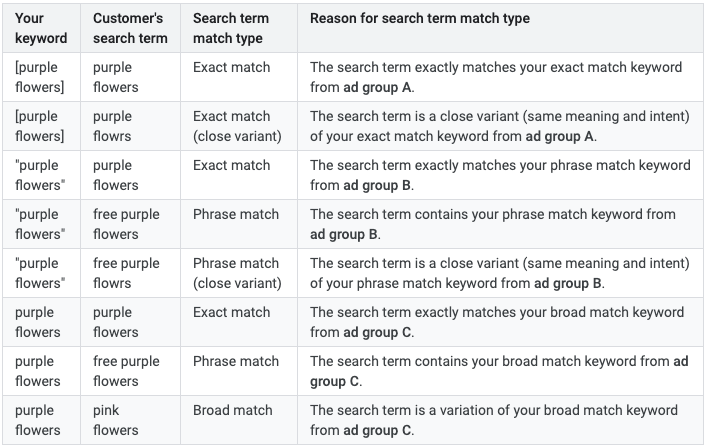Join 40,000+ sales and marketing pros who receive our weekly newsletter.
Get the most relevant, actionable digital sales and marketing insights you need to make smarter decisions faster... all in under five minutes.
Google Ads has quietly started removing data from the search terms report. Although this may not sound like a huge deal for digital marketers to take note of, it has the potential to wreak havoc for companies doing paid ads for reporting of clicks, return on ad spend (ROAS), and more.
The update was released via a notification in your Ads account, that can easily go unnoticed.
When clicking learn more you’re directed to a help article for search terms reports with a small additional regarding the update, specifically that they’ll be only including terms with a “significant number of users” searching for that term, even if the term generated a click on your ad.
We’re not yet sure what a “significant” actually looks like, but one thing is for sure — you’ll see fewer terms in your reports based on this update.
What is the Google search terms report?
For those that aren’t familiar with the search terms report, it’s a view into the actual searches that triggered your ads to show for the user. The report enables you to identify new terms that searchers are using that might be valuable to add into your ad campaign.

Source: Google
So, you can see why having some of this data hidden could be problematic, even if it is for low search/click search terms.
Why this change matters and what it means
Data is the driving force behind any optimized paid ads campaign. That's why this shift to hide low searched, but click producing, search terms from reports might give marketers a little bit of anxiety. Especially if your clicks and impressions have flatlined.
Without the full picture of it may be harder to identify areas of your ads that are underperforming especially for industries with high-cost search terms. Those looking to ensure that every dollar of ad budget is spent wisely as you strive to hit that ROAS.
🔎 Related: Why your Google Ads clicks and impressions are tanking
This real life example paints a pretty clear picture of the potential data loss and what that might mean for your budget tracking - be it a large or small budget.
Yes, your budget may be smaller than that, but the story holds true. With a smaller budget, making sure that your budget is going to search terms that are actually driving revenue is paramount.
Without this data, you could easily have one-click search terms that rack up an insane bill in a given month, very quickly, without having visibility into the cause.
🔎 Related: How much do Google Ads cost?
On the other end, if low-searched terms are driving a solid amount of qualified clicks to your campaign because of how targeted the campaign is — you may now lose that valuable data.
While we don’t know exactly how Google will hide the results just yet, now that we do know they’ll be changing things on us you’re likely thinking...
So, what now for Google Ads users?
I’d recommend starting with an audit of your current campaigns for any low-click search terms — if the data is still in your account, take stock before you lose it. That isn’t a long-term solution, but that information can help steer future efforts by knowing what low click terms drove highly qualified conversions at this point in time.
Using these low-search, low-click terms, while a great way to hyper-optimize, are just one piece of intent data that you have.
🔎 Related: What the heck is intent data?
Diversifying your ad campaigns into multiple channels, or an omnichannel paid ads program that leverages a variety of ad platforms can be a great way to improve your results — and to gather more data to optimize every campaign, not just those unique to a specific platform like Google Ads.
No matter what, you can count on one thing — Google is going to keep changing the game and we marketers have to stay fluid and pivot our strategies continuously. But, that’s basically the name of the game in 2020.
Free: Assessment

